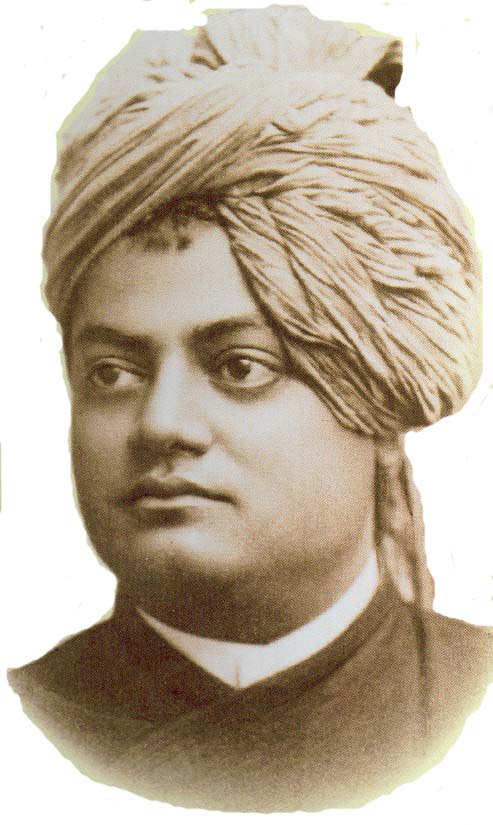[1] બે શિલ્પીઓ
એક ગામમાં બે શિલ્પીઓ રહેતા હતા. બંને જણા પોતાની કળામાં કુશળ હતા, પરંતુ એક ખૂબ ખરચાળ હતો અને બીજો બહુ કરકસરિયો હતો. આથી પહેલાના માથે રૂપિયા 500 દેવું થયું અને બીજાની પાસે રૂપિયા 500ની મૂડી થઈ. હવે એક વખત તે ગામના એક કલાપ્રેમી સદગૃહસ્થે બંનેની કલાઓ ખરીદી અને તે બદલ રોકડા પૈસા ન આપતાં પહેલાંને 4 ઘોડા અને બીજાને 2ઘોડા આપ્યા. હવે તે શિલ્પીઓએ સરખા ભાવે જ એ ઘોડાઓ વેચી નાખ્યા. તેથી બંનેની સ્થિતિ સરખી થઈ ગઈ, તો બંનેએ કેટકેટલા રૂપિયે ઘોડા વેચ્યા હશે ?
[2] આગગાડીના ઉતારુઓ
આગગાડીના એક ડબ્બામાં 4 ખાનાં ખાલી હતાં. તેમાં પૂના જનારા ઉતારુઓ બેઠા. હવે જો પહેલા ખાનામાંનો એક ઉતારુ બીજા ખાનામાં જાય તો ત્યાં પહેલા ખાનાથી ત્રણગણા માણસો થાય, જો બીજા ખાનાનો એક માણસ ત્રીજામાં જાય તો ત્યાં બીજા ખાના કરતાં ત્રણગણા થાય, પરંતુ જો બીજા ખાનામાંનો એક ચોથામાં જાય તો તે ખાનામાં બીજાથી બમણા રહે અને જો ચોથા ખાનાનો એક ઉતારુ પહેલામાં જાય તો ત્યાં (ચોથા ખાનામાં) દોઢગણા રહે, તો દરેક ખાનામાં કેટલા ઉતારુઓ બેઠા હશે ?
[3] ટોપલામાં કેરીઓ
અમારા ખેતરનો ચોકીદાર એક વખત અમારા આંબા પરથી 100 કેરીઓ લઈ આવ્યો. તેમાં કેટલીક કેરીઓ તરત ખાવાયોગ્ય ન હતી, એટલે તેના ભાગ પાડ્યા અને જુદા જુદા પાંચ ટોપલામાં તે કેરીઓ મૂકી દીધી. હવે પહેલા અને બીજા ટોપલાની કેરીઓ ગણી તો 55 થઈ, બીજા અને ત્રીજા ટોપલાની કેરીઓ ગણી તો 34 થઈ અને ચોથા ને પાંચમા ટોપલાની કેરીઓ ગણી તો 30 થઈ, તો દરેક ટોપલામાં કેટકેટલી કેરીઓ મૂકી હશે ?
[4] કેવો અજબ મેળ !
રાત્રે બધા કુટુંબીજનો એકઠા થયા હતા અને વિવિધ પ્રકારનો વાર્તાલાપ ચાલી રહ્યો હતો. તે વખતે વિનોદે કહ્યું કે મારા જન્મવર્ષના છેલ્લા બે આંકડા જેટલી જ મારી ઉંમર 1932માં હતી. એ સાંભળી દાદાએ કહ્યું કે ‘કેવો અજબ મેળ ! આ વસ્તુ મને પણ બરાબર લાગુ પડે છે.’ તો બંનેની જન્મસાલ કઈ ?’
[5] બે મિત્રોની તકરાર
કલુ અને મલુ જંગલમાં મુસાફરી કરતા હતા. તેઓ ખૂબ થાકી ગયા ત્યારે એક ઝાડ નીચે આરામ લેવા બેઠા. થોડી વારે તેમણે પોતાની પાસેનું ભાતું કાઢ્યું. તેમાં કલુ પાસે પાંચ ભાખરી હતી અને મલુ પાસે ત્રણ ભાખરી હતી. તેઓ પોતાની ભાખરી ભેગી કરી ખાવાની શરૂઆત કરે છે, ત્યાં કોઈ લોથપોથ થઈ ગયેલો મુસાફર આવ્યો. ભૂખ્યાને ભોજન દેવું એ મનુષ્યમાત્રનો ધર્મ છે, એમ માની તેમણે એ મુસાફરને પોતાની સાથે બેસીને ખાવાનું આમંત્રણ આપ્યું. આ ત્રણેય જણાએ સરખા ભાગે ખાધું. હવે તે મુસાફર 8 પૈસા આપીને ચાલતો થયો. તેમાંથી કલુએ પાંચ પૈસા લીધા ને મલુને ત્રણ પૈસા આપ્યા. પરંતુ મલુએ તકરાર કરી કે મને અર્ધા પૈસા મળવા જોઈએ. કલુએ આ વાત માની નહીં. આથી તકરાર વધી. છેવટે તેઓ પાસેના ગામમાં ગયા ને એક ડાહ્યા માણસ આગળ પોતાની તકરાર મૂકી. તેણે ફેંસલો આપ્યો કે કલુને 7 પૈસા અને મલુને 1 પૈસો આપવો. આ સાંભળી બંને જણાને લાગ્યું કે શેઠે ન્યાય આપવામાં ભૂલ કરી છે, એટલે શેઠને પૂછ્યું : ‘આમાં કંઈ ભૂલ તો થતી નથી ને ?’ પણ શેઠ પોતાની વાતમાં મક્કમ રહ્યા. તો શું શેઠ સાચા હશે ? કેવી રીતે?
[6] વાઘ, બકરી અને ઘાસનો પૂળો
નદીના એક કાંઠે એક વાઘ, એક બકરી અને એક ઘાસનો પૂળો છે. એ ત્રણેયને સામે કાંઠે લઈ જવાનાં છે. નદીમાં જે મછવો છે, તેમાં ખલાસી એક વખતે એક જ ચીજ લઈ જઈ શકે છે. જો એક કાંઠે વાઘ અને બકરી રહી જાય તો વાઘ બકરીને ખાઈ જાય અને બકરી તથા પૂળો રહી જાય તો બકરી પૂળો ખાઈ જાય. વાઘ ઘાસ ન ખાય, તેમ જ માણસની હાજરીમાં કોઈ કોઈનું નામ લઈ શકે નહીં. હવે એ ત્રણેયને સામે કાંઠે શી રીતે લઈ જવા, તે બતાવશો ?
[7] મોટરનું વેચાણ
એક માણસે બે મોટરો વેચી. તે દરેકના તેને 2000 રૂપિયા ઉત્પન્ન થયા. હવે તેને પહેલી મોટરમાં20 ટકાનો નફો થયો છે અને બીજીમાં 20 ટકાનું નુકશાન થયું છે. તો એકંદર નફો કે નુકશાન ?નફો હોય તો નફો કેટલો ? અને નુકશાન હોય તો નુકશાન કેટલું ?
[8] ચોરનો દરોડો
એક વખત સાંજના એક કાછિયણ પોતાના ટોપલામાં કેટલીક નારંગીઓ લઈને પાસેના ગામમાં જતી હતી. તેવામાં નદીકિનારે ત્રણ ભૂખ્યા ચોરોએ હુમલો કર્યો. તેમને ખાવાની વસ્તુ સિવાય બીજું કંઈ જોઈતું ન હતું. એટલે પહેલા ચોરે અર્ધી નારંગીઓ લઈ લીધી, પણ 10 પાછી આપી. બીજાએ બાકી રહેલાનો ત્રીજો ભાગ લીધો, પણ બે નારંગી પસંદ ન પડી, તેથી પાછી મૂકી. ત્રીજાએ બાકી રહેલાની અર્ધી લીધી પણ 1 નારંગી કોહી ગયેલી હતી તે પાછી આપી. હવે તે કાછિયણ માંડ માંડ નાસી છૂટી. તેણે દૂર જઈને પોતાના ટોપલામાંની નારંગીઓ ગણી તો 12 થઈ, તો ઘરેથી નીકળતી વખતે તેની પાસે કેટલી નારંગીઓ હશે ?
[9] ભરવાડ અને બકરાં
કાના ભરવાડ પાસે 100 બકરાં હતાં. તેમને માટે તેણે 50 થાંભલા ખોડીને એક વાડો બનાવ્યો હતો. હવે એક વાર તેણે બીજા ભરવાડ પાસેથી 100 બકરાંનો સસ્તા ભાવે સોદો કર્યો ત્યારે તેના ભાઈએ કહ્યું કે, ‘આપણી પાસે વાડો તો 100 બકરાં બેસે એટલો છે. તેમાં 200 બકરાં શી રીતે બેસાડીશ ?’કાનાએ કહ્યું, ‘તારે એની ફિકર કરવી નહીં. હું માત્ર બે જ નવા થાંભલા લઈ આવીશ કે એ વાડમાં200 બકરાંનો સમાવેશ થઈ જશે.’ પછી તેણે 100 બકરાં ઠરાવેલા ભાવે ખરીદ્યાં અને બે નવા થાંભલા લાવી, એ વાડો એવો બનાવી દીધો કે તેમાં 200 બકરાં બરાબર સમાઈ રહ્યાં. તો તેણે શી રીતે ગોઠવણ કરી હશે ?’
[10] કુલ મોતી કેટલાં ?
ગોરી બેઠી ગોખ-તળે નદી કેરે નીરે;
તૂટ્યો મોતી હાર, પડ્યો જઈ તેને તીરે.
અડધ મોતી જળ મહીં, પલકમાં જઈને પડીઆં;
ચોથ સવાયો ભાગ તે, કચરે જઈને અડીઆં,
વળી છઠ્ઠો ભાગ સેવાળમાં, ગબડી ગબડી ને ગયાં;
પૂછીએ મોતી કેટલાં, કામિની કરમાં બે રહ્યાં.
 In spite of her innumerable linguistic, ethnic, historical and regional diversities, India has had from time immemorial a strong sense of cultural unity. It was, however, Swami Vivekananda who revealed the true foundations of this culture and thus clearly defined and strengthened the sense of unity as a nation.
In spite of her innumerable linguistic, ethnic, historical and regional diversities, India has had from time immemorial a strong sense of cultural unity. It was, however, Swami Vivekananda who revealed the true foundations of this culture and thus clearly defined and strengthened the sense of unity as a nation.










